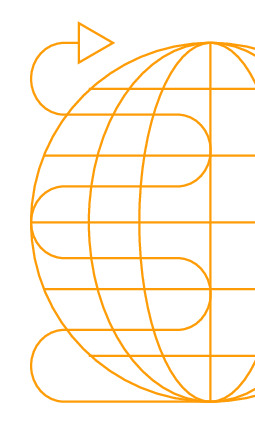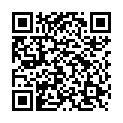|
|
|
| Module code: BITM-W-12 |
|
|
4SU (4 hours per week) |
|
5 |
| Semester: according to optional course list |
| Mandatory course: no |
Language of instruction:
German |
Assessment:
Project (can be repeated annually)
[updated 17.09.2018]
|
DFBTO-W-08 (P620-0483, P620-0536) International Tourism Management, Bachelor, ASPO 01.10.2018
, semester 5, optional course
DFITM-W-12 International Tourism Management, Bachelor, ASPO 01.10.2020
, optional course
BITM-W-12 (P440-0093) International Tourism-Management, Bachelor, ASPO 01.10.2013
, optional course
BITM-W-12 (P440-0093) International Tourism-Management, Bachelor, ASPO 01.10.2015
, optional course
BITM-W-12 (P440-0093) International Tourism-Management, Bachelor, ASPO 01.10.2017
, optional course
BITM-W-12 (P440-0093) International Tourism-Management, Bachelor, ASPO 01.10.2020
, optional course
|
60 class hours (= 45 clock hours) over a 15-week period.
The total student study time is 150 hours (equivalent to 5 ECTS credits).
There are therefore 105 hours available for class preparation and follow-up work and exam preparation.
|
Recommended prerequisites (modules):
BITM-112 Principles of the Tourism Sector
BITM-240 Marketing and Market Research in Tourism
[updated 11.12.2019]
|
Recommended as prerequisite for:
|
Module coordinator:
Prof. Dr. Kerstin Heuwinkel |
Lecturer: Prof. Dr. Kerstin Heuwinkel
[updated 26.06.2017]
|
Learning outcomes:
After successfully completing this module, students will have developed and deepened their knowledge of:
- the terminology and concepts of tourism sociology and psychology.
- the dimensions of tourism sociology and psychology
- the links between tourism and society
- general concepts of tourism sociology
- the social framework for mobility/tourism/travel
- the analysis and design-(ability) of special forms of travel based on sociological and psychological concepts.
After successfully completing this module, students will:
- have gained insights into the principles of tourism sociology and psychology
International and intercultural references
- Dealing with (inter-) national phenomena concerning tourism and
society
- Cultural roots of travel
in the context of examples from international cultures in tourism
Practical references:
- Sociological and psychological science and
management concepts in tourism and society
- Sociological and psychological methods in tourism
- Social competence
- Projects, guest lectures, excursions (together with students from different
semesters and subject areas)
- in particular sociological and psychological science and
management concepts and methods that are important for a sustainable and responsible
tourism industry
Students will expand and deepen their skills in modern presentation techniques, project and team work and scientific work techniques.
After successfully completing this module, students will be able to:
- understand, analyze and map service-oriented problems and special aspects of tourism sociology and psychology in planning models
- apply basic planning and control methods in the context of tourism sociology and psychology (strategic planning of social science instruments and their operational implementation within the framework of projects)
- describe, develop, plan and design basic service-specific processes in tourism sociology and psychology,
- plan, implement and control basic service-oriented strategies and concepts in tourism sociology and psychology
- cooperate and evaluate within the framework of project management (focus/project definition, planning, project structuring, prioritization/derivation of analyses, activity planning, implementation, success control)
- apply the principles of process management in order to establish control processes
- communicate more efficiently and interact with external parties and groups
- apply the principles of motivation and teamwork
[updated 17.09.2018]
|
Module content:
- The terminology of tourism sociology and psychology
- The principles of tourism sociology and psychology
- Tourism and society
- General concepts of tourism sociology
- The social framework for mobility/tourism/travel
- Analysis and design of special forms of travel
[updated 17.09.2018]
|
Teaching methods/Media:
- Lecture
- Case studies (excursions, if necessary)
- Group and project work (independent development of a concept
and its presentation and where applicable, implementation)
- Discussions with students and guests
- Presentations and preparation of documentations/compositions
On the basis of selected data and case studies, students will be taught to develop concepts independently, as well as implement their concepts and reflect upon them.
[updated 17.09.2018]
|
Recommended or required reading:
In addition to the basic literature already mentioned in the modules BITM-111 and BITM-320, the following literature is recommended:
Apostolopoulos, Y./Leivadi, St./Yiannakis, A. (Hrsg.) (1996), The Sociology of Tourism. Theoretical and Empirical Investigations, London.
Beck, U. (1986). Risikogesellschaft. Auf dem Weg in eine andere Moderne. Frankfurt/M.: Suhrkamp.
Berger/Luckmann (1996): Die gesellschaftliche Konstruktion der Wirklichkeit. Eine Theorie der Wissenssoziologie. Fischer, Frankfurt
Cohen, E. (1996): The sociology of tourism. In: Apostolopoulos, Y. et.al: The sociology of tourism. London: Routledge
Dreyer, A., Menzel, A., Endreßč, M. (Hrsg.) (2010). Wandertourismus. München: Oldenbourg
Elias, Norbert (1993): Was ist Soziologie? 5. A., Weinheim.
Enzensberger, H. M. (1964, 1976), Eine Theorie des Tourismus, in: ders., Einzelheiten. Bd. 1: Bewußčtseins-Industrie, Frankfurt a. M. 1964.
Hahn, H. & Kagelmann, H.J. (1993): Tourismuspsychologie und Tourismussoziologie. München.
Krippendorf, J. (1986). Die Ferienmenschen. Für ein neues Verständnis von Freizeit und Reisen. München: dtv.
Luhmann, N. (1990): Ökologische Kommunikation. Opladen: Westdeutscher Verlag, 3. A.
Schulze, G. (1992). Die Erlebnisgesellschaft. Frankfurt: Campus.
Spode, H., Ziehe, I. (Hrsg.) (2005) Gebuchte Gefühle. Tourismus zwischen Verortung und Entgrenzung. München/Wien: Profil-Verlag. 3-89019-556-3
Vester, H.-G. (1988). Zeitalter der Freizeit. Darmstadt: Wissenschaftliche Buchgesellschaft.
Weber, M. (1995): Schriften zur Soziologie, Stuttgart: Reclam
Weiermair, K., Brunner-Sperdin, A. (2006). Erlebnisinszenierung im Tourismus. Berlin: Schmidt
In addition, project-specific introductory literature in the relevant languages will be announced during the lectures.
[updated 17.09.2018]
|


